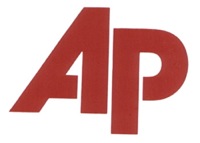 Earlier today, Google and The Associated Press announced that they’ve struck a new licensing deal that will allow Google to continue posting content from the news cooperative. The contract is an extension of an agreement that goes back to 2006 — the one that permits Google to host AP content on Google properties (Google News, most prominently). And, depending on whose statement you read, the agreement will both “create a better user experience and new revenue opportunities” and allow the companies to “work together in a number of new areas, such as ways to improve discovery and distribution of news.”
Earlier today, Google and The Associated Press announced that they’ve struck a new licensing deal that will allow Google to continue posting content from the news cooperative. The contract is an extension of an agreement that goes back to 2006 — the one that permits Google to host AP content on Google properties (Google News, most prominently). And, depending on whose statement you read, the agreement will both “create a better user experience and new revenue opportunities” and allow the companies to “work together in a number of new areas, such as ways to improve discovery and distribution of news.”
The deal comes after months of often tense back-and-forth between the two media behemoths. With their 2006 licensing contract — which arose from an AP threat to sue Google for the content it was aggregating through its search algorithm — expiring in January, the question of whether or not a renewal would come about in the first place has been an open one. In as late as October of 2009, CEO Tom Curley denied that the AP was in licensing-contract renegotiations with Google, saying, “We haven’t talked. We haven’t talked with them in any serious way.” Then, for several weeks this winter, after the contract had expired, AP content stopped appearing on Google’s interface — a situation that ended in February with a “sort of temporary detente.”
 So what might we read into today’s renewal announcement? I spoke with someone familiar with the terms of the agreement, who provided me with a bit more background on the deal and its meaning. In the absence of precise information on the renewal — about which both companies are currently keeping mum — probably the main shift of note here is the change represented not in the terms, but in their tone: a move on both sides away from “vendor,” and toward “partner.” There’s reason to think, in other words, that the licensing agreement is more than simply a contract renewal, and more even than another detente: that it marks a change in the overall relationship between the two trend-setting media organizations. Us-versus-them becoming let’s-work-together.
So what might we read into today’s renewal announcement? I spoke with someone familiar with the terms of the agreement, who provided me with a bit more background on the deal and its meaning. In the absence of precise information on the renewal — about which both companies are currently keeping mum — probably the main shift of note here is the change represented not in the terms, but in their tone: a move on both sides away from “vendor,” and toward “partner.” There’s reason to think, in other words, that the licensing agreement is more than simply a contract renewal, and more even than another detente: that it marks a change in the overall relationship between the two trend-setting media organizations. Us-versus-them becoming let’s-work-together.
If so, that’s a significant shift. Google has been on a partnership kick of late, going out of its way to work with media organizations in a way that, much more than before, integrates news content with news platform. The most prominent examples — Living Stories, Fast Flip, Editors’ Picks, etc. — suggest a Google that is trying to mend fences by way of breaking them down. And the AP, for its part (perhaps in response to the 10 percent drop in revenue, and 68 percent drop in profit, it has endured since 2008), has stepped down its most heated rhetoric about appropriated content and the like. So we’re seeing some kind of renewal today; we’ll be interested to learn, as time goes on, whether it’s of a marriage of convenience or something more truly companionate.